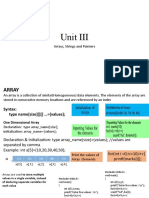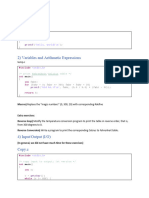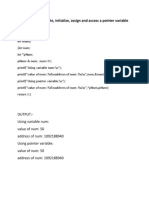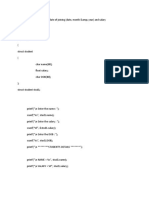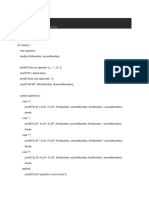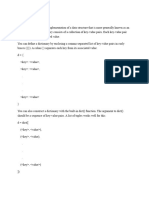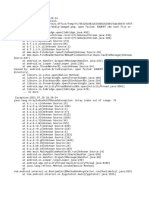0% found this document useful (0 votes)
18 views79 pagesCheatsheet Programming 1
The document contains various C programming examples demonstrating type casting, dynamic memory allocation for 2D arrays, function pointers, conditional compilation with preprocessor directives, and argument handling in the main function. It also includes examples of standard input/output functions like printf, scanf, and file operations. Overall, it serves as a tutorial on fundamental C programming concepts and techniques.
Uploaded by
0207hungphanCopyright
© © All Rights Reserved
We take content rights seriously. If you suspect this is your content, claim it here.
Available Formats
Download as PDF, TXT or read online on Scribd
0% found this document useful (0 votes)
18 views79 pagesCheatsheet Programming 1
The document contains various C programming examples demonstrating type casting, dynamic memory allocation for 2D arrays, function pointers, conditional compilation with preprocessor directives, and argument handling in the main function. It also includes examples of standard input/output functions like printf, scanf, and file operations. Overall, it serves as a tutorial on fundamental C programming concepts and techniques.
Uploaded by
0207hungphanCopyright
© © All Rights Reserved
We take content rights seriously. If you suspect this is your content, claim it here.
Available Formats
Download as PDF, TXT or read online on Scribd
/ 79






























